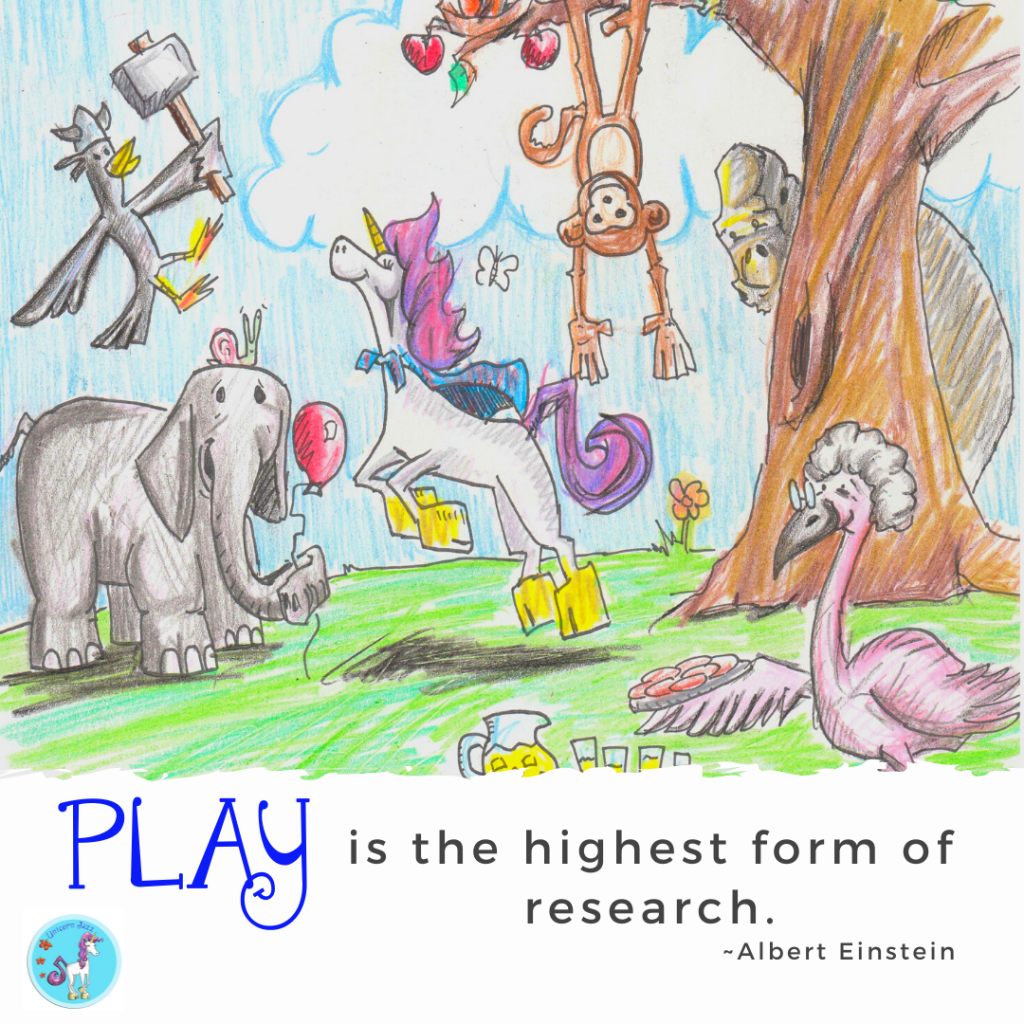Why Playing Make Believe is Important
Playing make believe and other play time at home or at school is a great opportunity for children to explore curiosities and natural creative outlets. Play helps to foster children’s fine and gross motor skills development, body awareness. Developing imagination in play is important for young children.
Playing make believe is important and when your child pretends to be different characters, he or she has the experience of pretending to be someone else.
By playing make believe, a child can:
- Gain a new perspective.
- Teach the social emotion learning and moral development skills like empathy, understanding, compassion.
“When I was a little girl, my siblings and cousins would go outside my grandmother’s backyard to play make believe characters. Our silly name for our imaginative play was ‘Wonder Woman, Godzilla and all that!'” says children’s book author, Lisa Caprelli.
“Play is the highest form of research.” — Albert Einstein
Next, pretend play helps kids practice and learn about the power of language and communication.
Finally, give importance to words and meaning by playing make believe. This gives a child the ability to re-enact situations, give a perspective. When a child can be heard this leads to understanding.
Bee-ing Happy with Unicorn Jazz and Friends, incorporate ideas of happiness that children can relate to. One of its pages is Bee-ing Happy is playing make-believe.

3 Learning benefits of Playing Make Believe:
- The imagination provides children ways to relate to the adult world at hand.
- Social Skill Development and Communication in practice such as: listening, using gestures and tone, speaking, negotiation skills, turn taking and sharing.
- Emotional Intelligence: Understanding and expressing feelings through the re-enactment of experiences seen or imagination of ideas.




